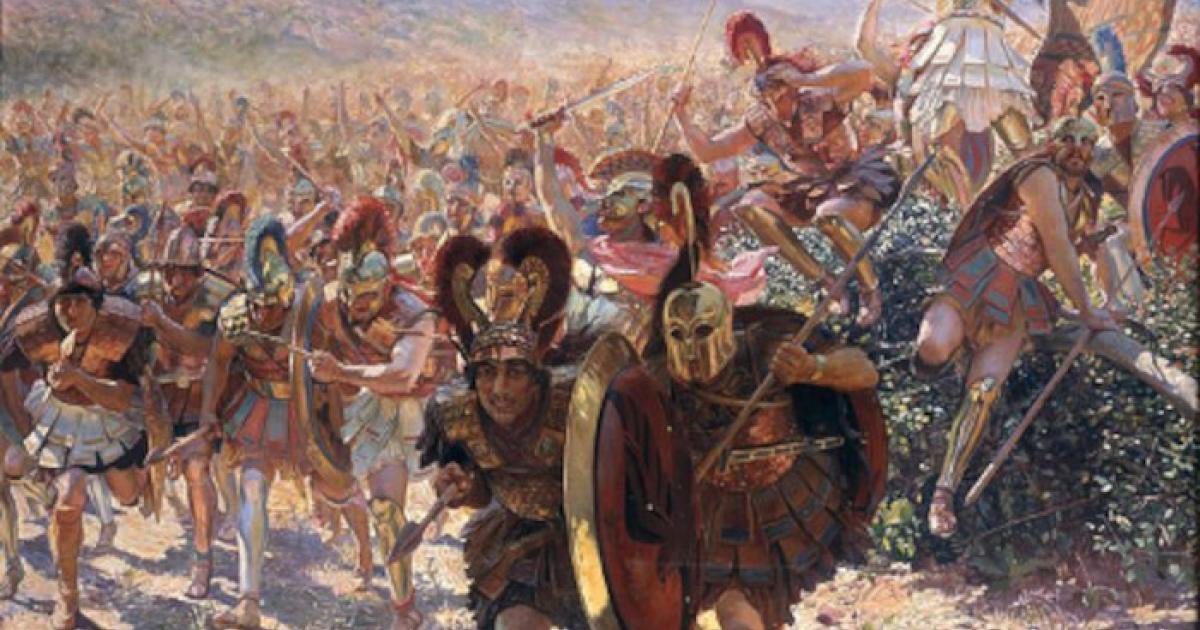A Thread on the Munich Agreement and the Stalin-Hitler Pact
The lesson that everyone thinks we drew from WW2 is some sort of trite rule about standing up to bullies, because if you try to "appease" them, everything will spiral out of control. This is wrong. (1)
The lesson that everyone thinks we drew from WW2 is some sort of trite rule about standing up to bullies, because if you try to "appease" them, everything will spiral out of control. This is wrong. (1)
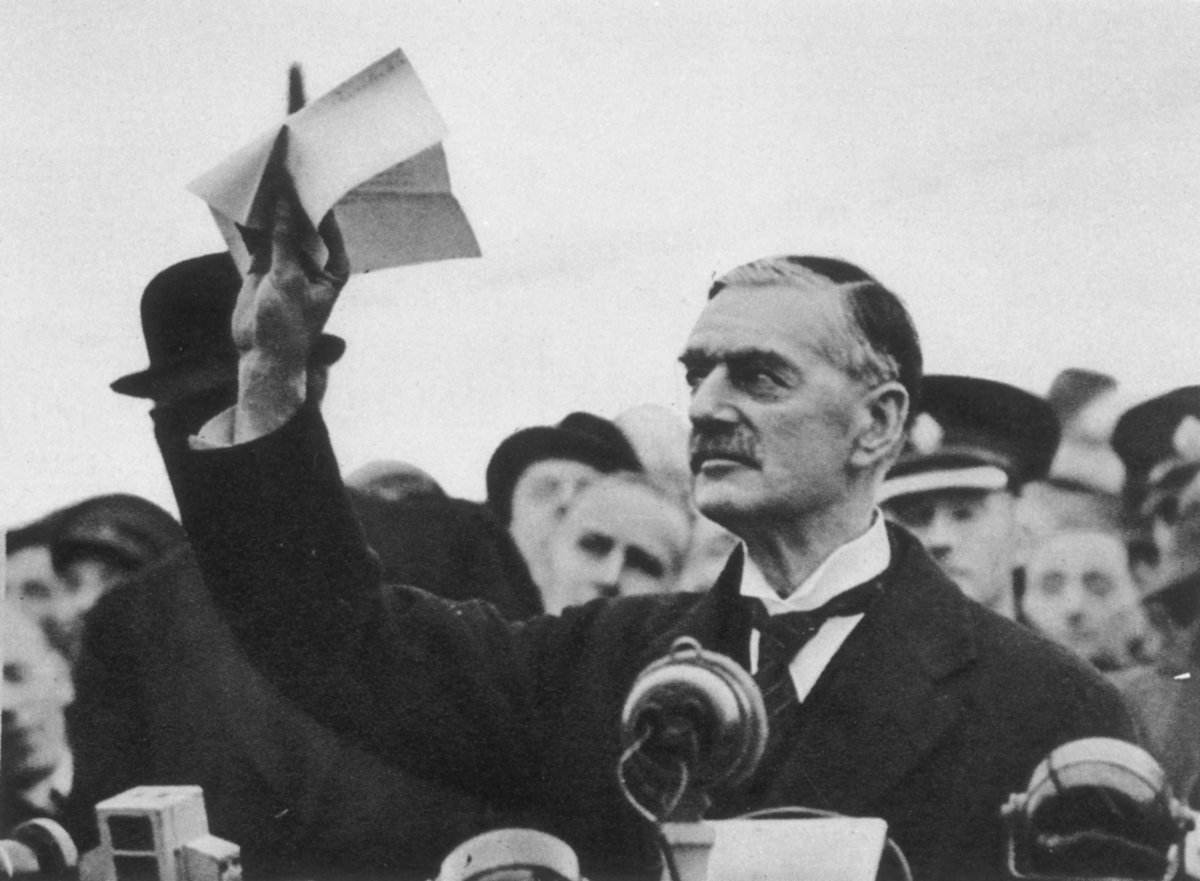
Western understandings of interwar diplomacy are incomplete and factually questionable. For one thing, they almost always ignore the fact that Stalin was an extremely important actor. This wasn't a one on one between Chamberlain and Hitler - it was a three man drama. (2) 
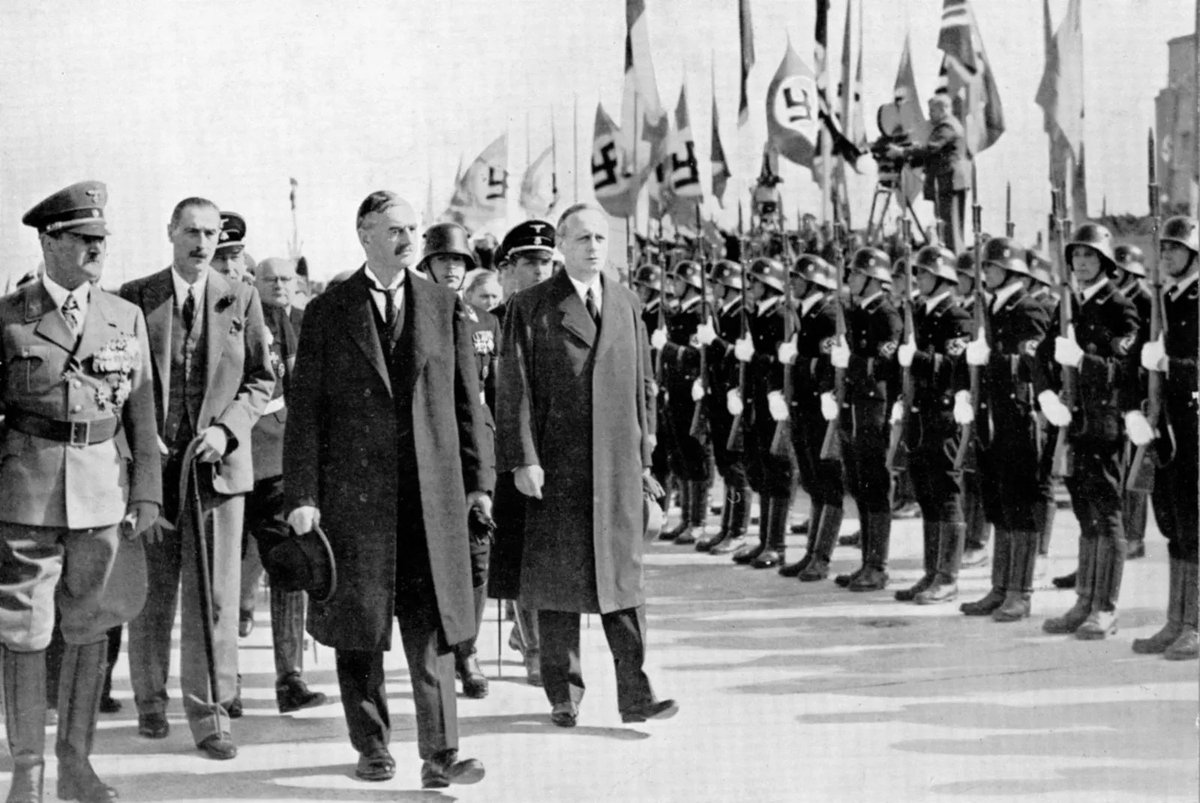
To start off, we have to go back to the Versailles Treaty. This was a colossal failure - not just because it was overly punitive against Germany and lacked enforcement, but also because it totally failed to account for the Soviet Union as a geopolitical entity. (3) 

In the wake of World War One, both Germany and the USSR were pariah states. This gave them both a strong incentive to link up and cooperate. They started doing this almost immediately with the Treaty of Rapallo in 1922, followed by the 1926 Treaty of Berlin. (4) 
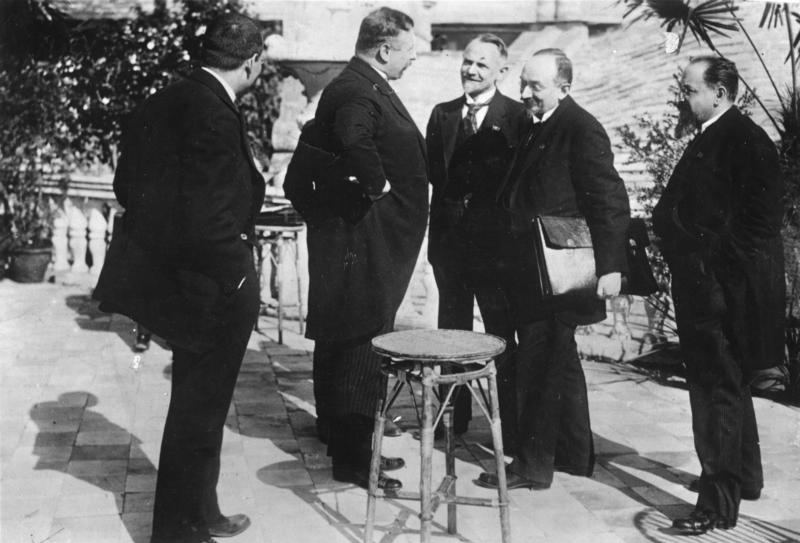
The British quickly became concerned about German industrial prowess linking up with the Soviet Union's massive population and natural resources. Their plan to prevent this was to quietly soften the terms of Versailles and, in essence, rehabilitate Germany's pariah status. (5) 
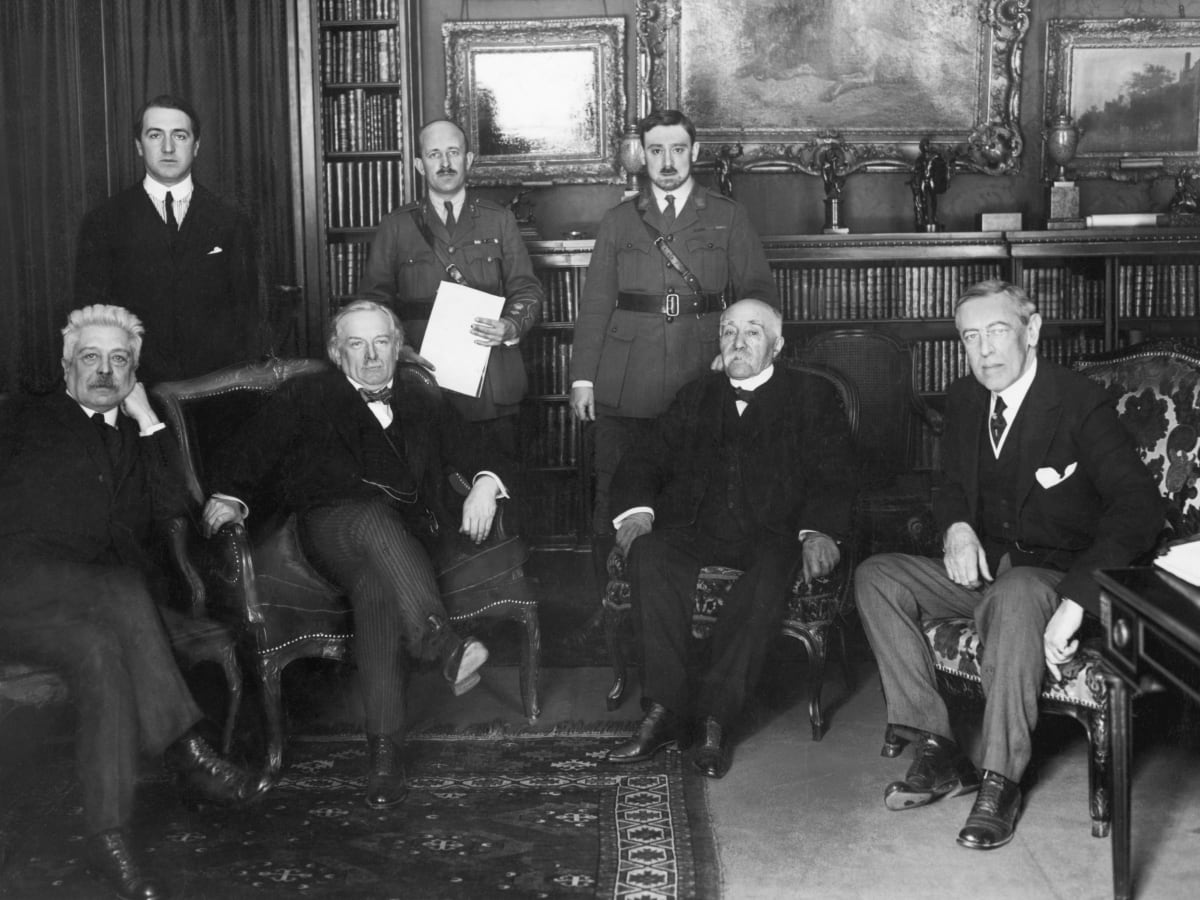
In 1925, Britain and France signed off on the Locarno Treaties, which normalized relations with Germany, and - paired with the Dawes Plan, which created a payment plan for Germany's reparations debt - went a long way towards resolving the postwar diplomatic tangle. (6) 

Note that all of this predates Hitler's 1933 rise to power. This wasn't about "appeasing" Germany; the British were deeply concerned that maintaining Germany's pariah status would prompt a deeper German-Soviet linkup and create a dangerous anti-western continental bloc. (7)
Hitler's rise to power obviously complicated matters. Nazi Germany was overtly revanchist and rearming. What was not immediately clear, however, to either Stalin or British leadership was the extent to which they needed to revise their strategies to deal with Hitler. (8) 

Chamberlain remained deeply concerned about the expansion of Soviet power into Central Europe. At one point, he expressed to Hitler his concern that if another war began in Europe, "only the communists" would benefit. (9) 
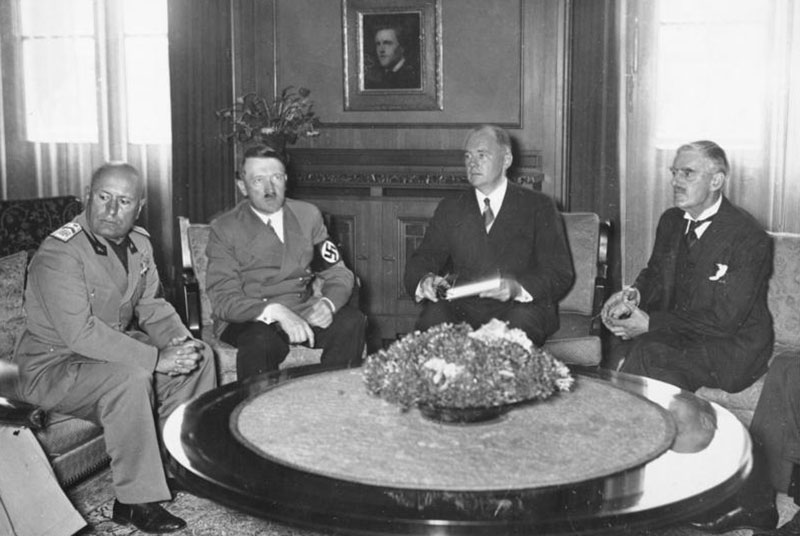
On the other side of Europe, Stalin's main goal was, in fact, to nudge Hitler into fighting another war with the British and French. He frequently spoke of a second "inter-capitalist war" which would exhaust the west, while the USSR watched. (10) 
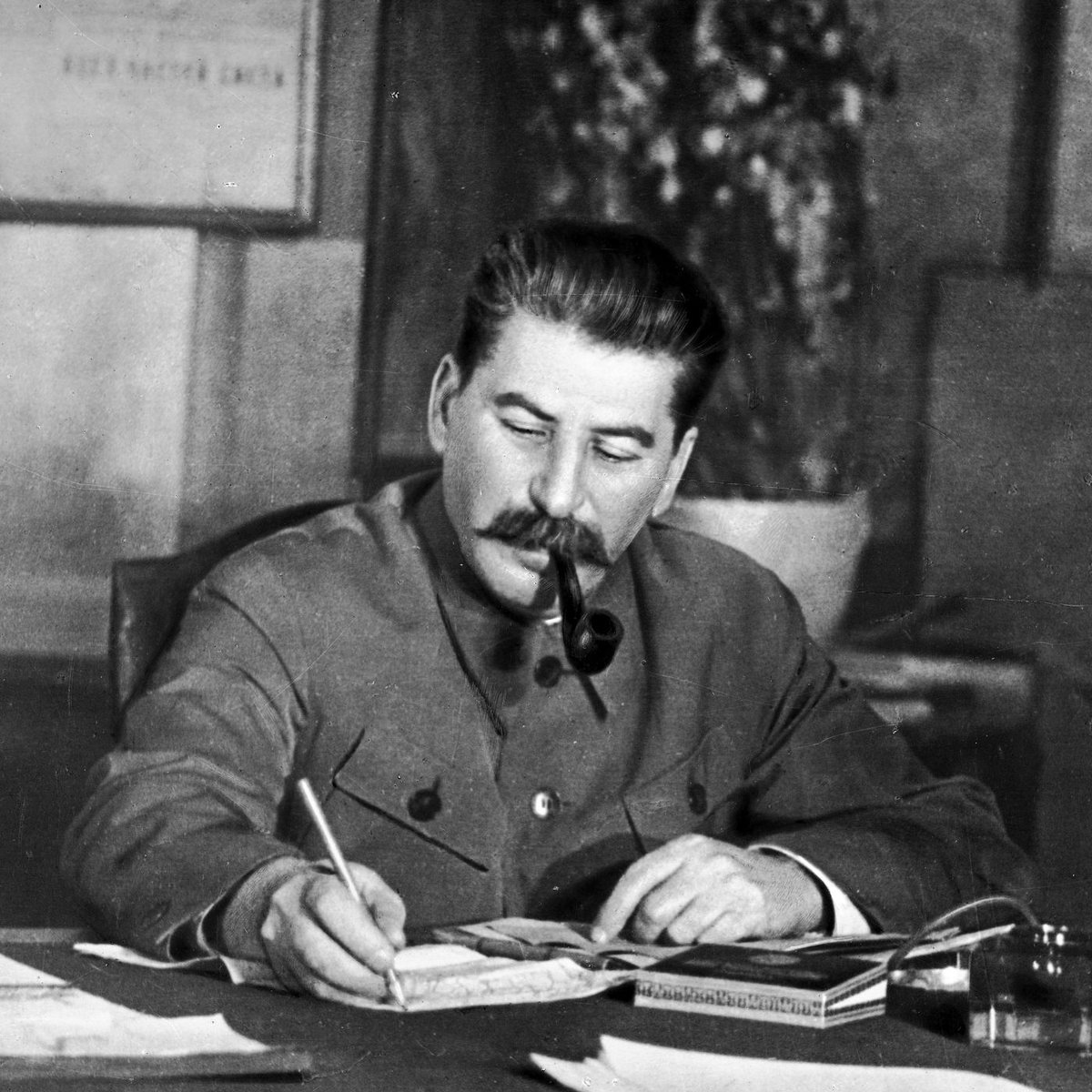
Stalin understood that World War One had been the necessary precondition for successful revolution in Russia, and believed that another war would allow the revolution to spread further. The Red Army, he pledged, would be "the last man in the fight." (11) 

So, we have Stalin hoping that Hitler starts a war with the western powers, and Chamberlain doing everything to avoid this. He would complain that Stalin was “stealthily and cunningly pulling all the strings behind the scenes to get us involved in war with Germany." (12) 
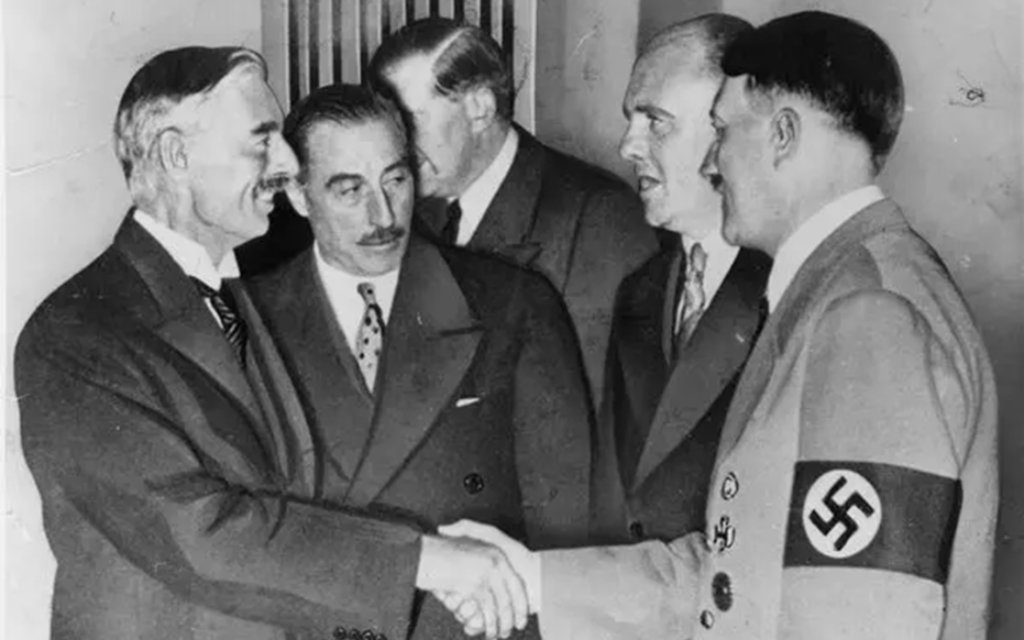
But what does Hitler want? Well, succinctly, war. War is both central to his ideology, and furthermore he is gearing the entire German state for war and incurring huge economic costs to do so. After annexing Austria in 1938, he turns towards Czechoslovakia. (13) 
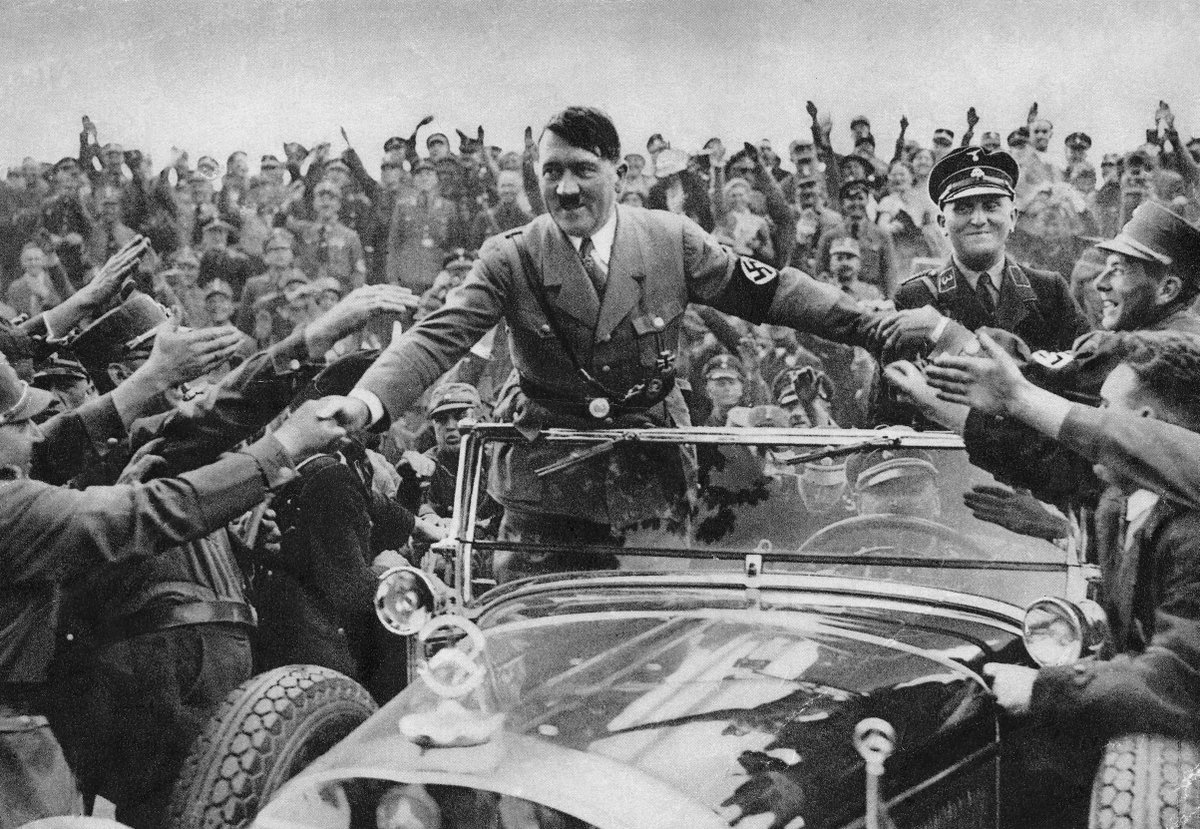
Hitler works behind the pretext of bringing ethnic Germans into the Reich, but deep down he wants to do this militarily. The order that goes out to the army says that it is the Fuhrer’s “unalterable decision to smash Czechoslovakia by military action.” (14) 
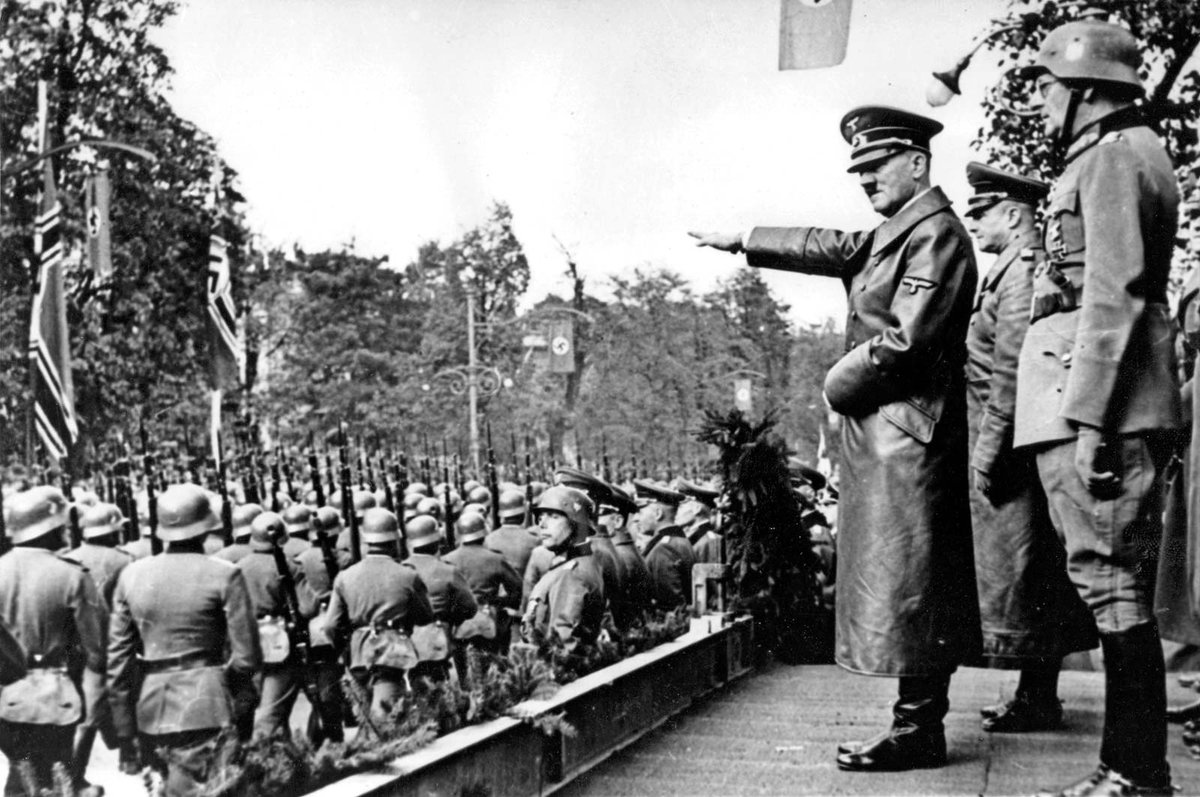
At the last hour, Chamberlain swoops in and calls Hitler's bluff. Hitler has been making demands of the Czechs that he believes they'll never agree to, but Chamberlain calls the bluff and gives Hitler what he's asking for. This is the famous Munich agreement. (15) 

Calling this "appeasement" is very inaccurate. It was actually a clever move by Chamberlain that very nearly diffused the situation by stripping away Hitler's pretext for war. Hitler was actually furious and felt he'd been outmaneuvered! (16) 
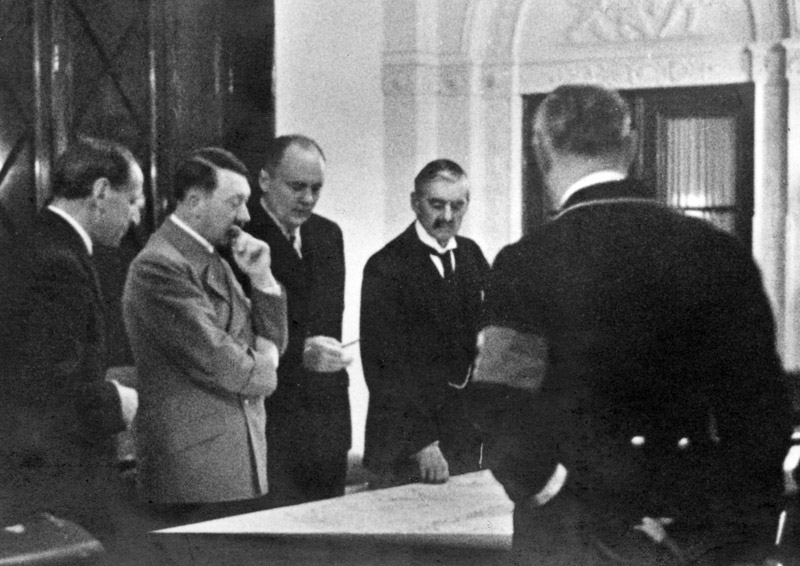
Hitler wanted to smash Czechoslovakia militarily, and Chamberlain threw a major wrench in the works. Hitler certainly didn't feel "appeased." His reaction? "That fellow" (meaning Chamberlain) "has spoiled my entry into Prague." (17) 
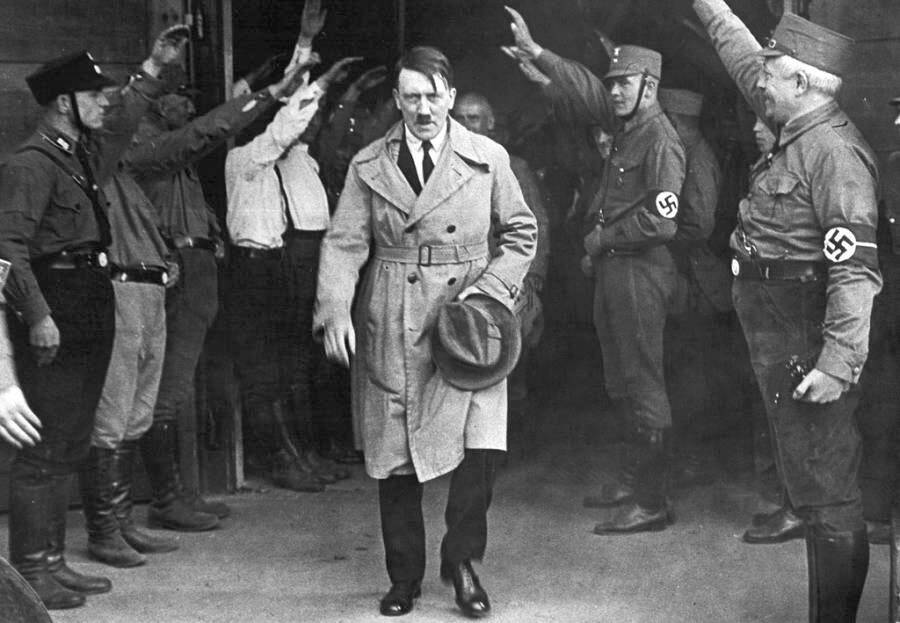
However, Hitler's desire for military action is so insatiable (for many reasons, ideological, economic, and especially his belief that he had a world historical destiny, and his fear that he would die before it was accomplished) that he invaded the rump Czech state anyway. (18) 

At this point, Britain and France grimly realize that Hitler is probably going to force a war on them, and they draw a red line on Poland. Ironically, Hitler's foreign policy is so erratic that he (bizarrely) has actually offered Poland an alliance! (19) 

Throughout the late 1930's, Hitler tried to court Poland into joining him in an anti-Soviet crusade, bizarrely offering to swap Polish territory in the west for lands that would be taken from the USSR. Poland, baffled, refused. So, in early 1939, Hitler changed course. (20) 
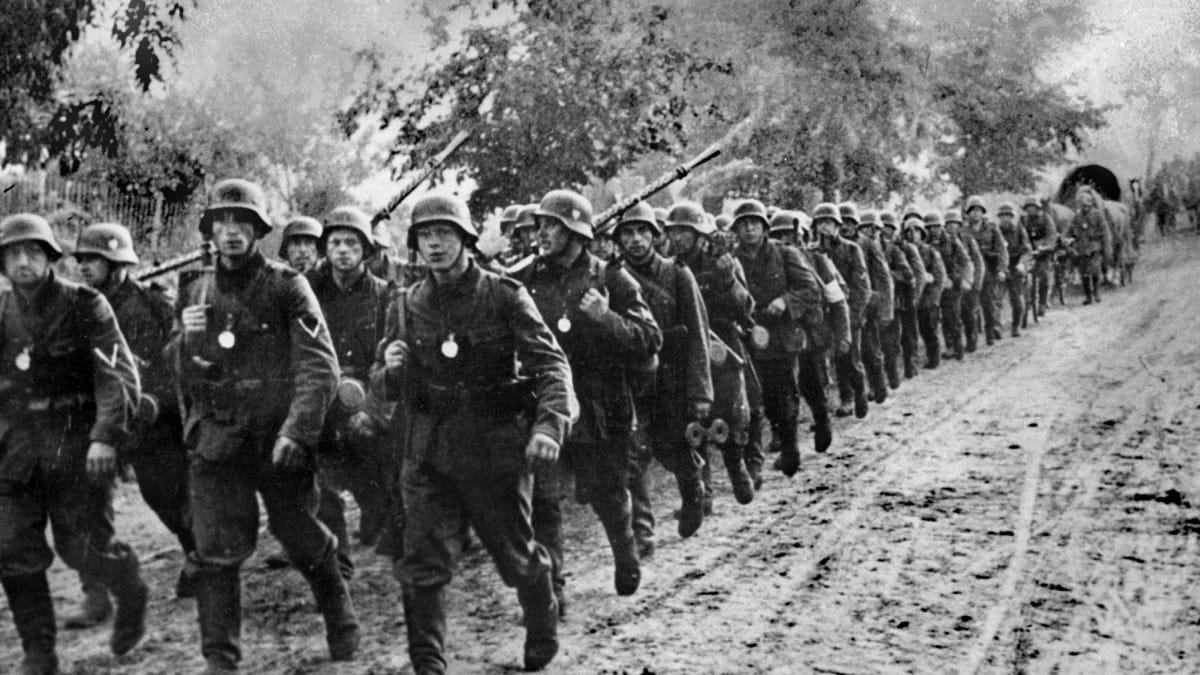
What nobody could truly grasp was just how erratic and anarchistic Hitler's foreign policy was. Poland could join as a junior partner in an anti-Soviet war, or it could be destroyed. In Hitler's brain, it didn't much matter which. This is a dog chasing cars. (21) 
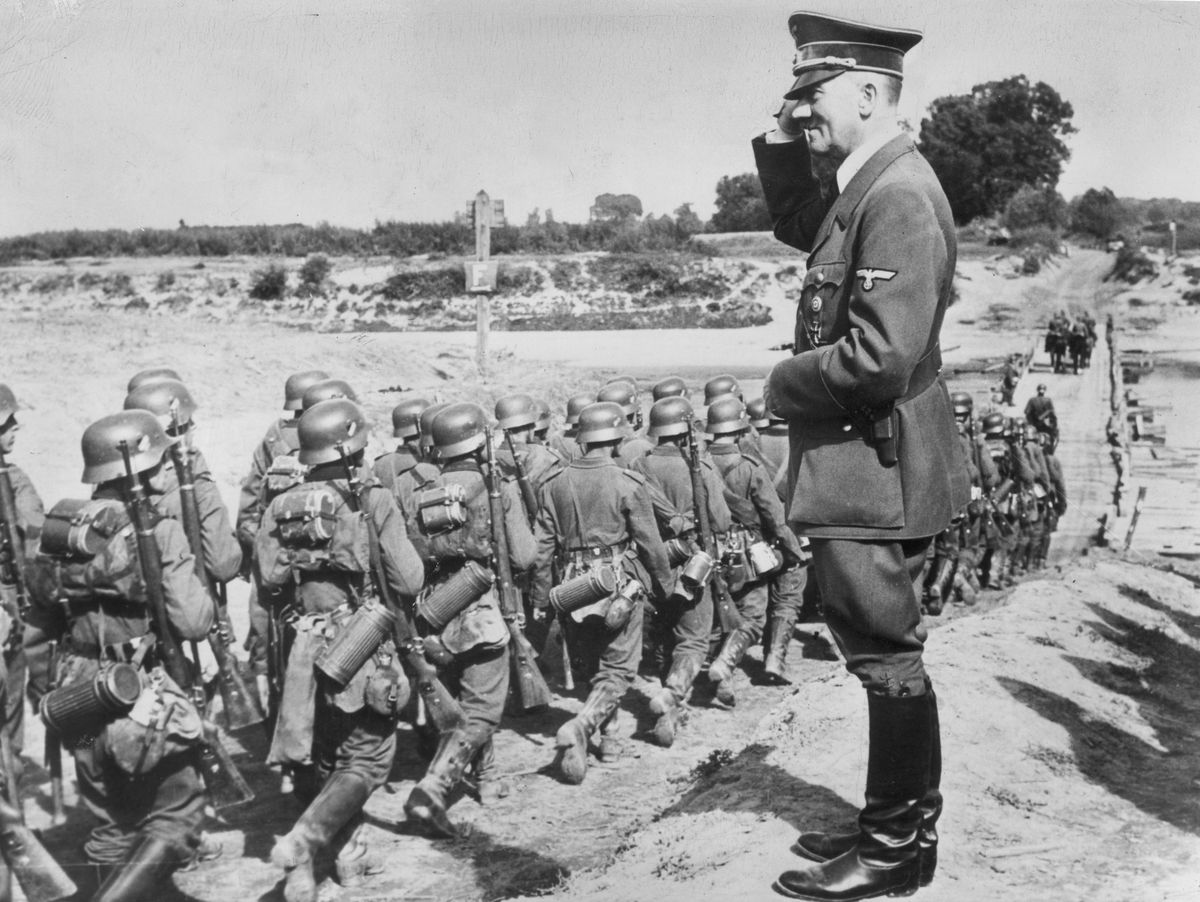
Rebuffed by the Poles, Hitler goes to the last remaining option for a deal and makes a pact with Stalin. This is the infamous Molotov-Ribbentrop pact. Having made the decision to destroy Poland, and with the Anglo-French bloc hardened against him, he needs at least one ally. (22) 
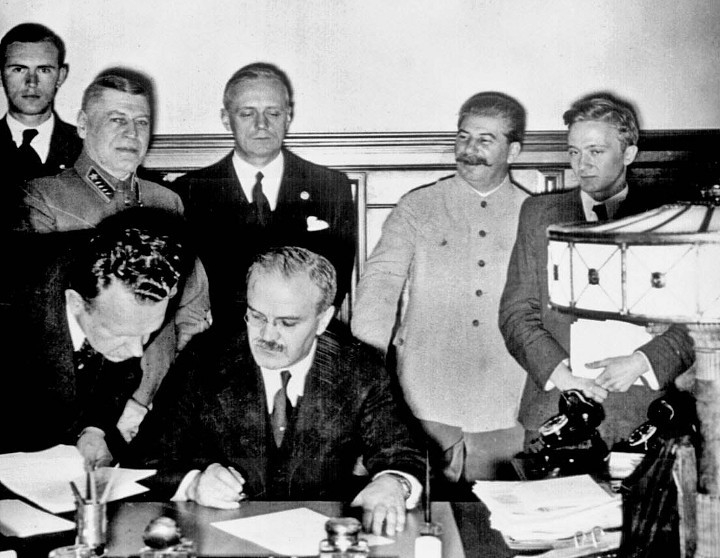
Stalin is delighted, because this fulfills a deeply held foreign policy goal: keep the USSR safely at arms length from the coming war. Hitler is like a loose cannon on deck, and Stalin just wants to make sure it rolls away from him. (23) 
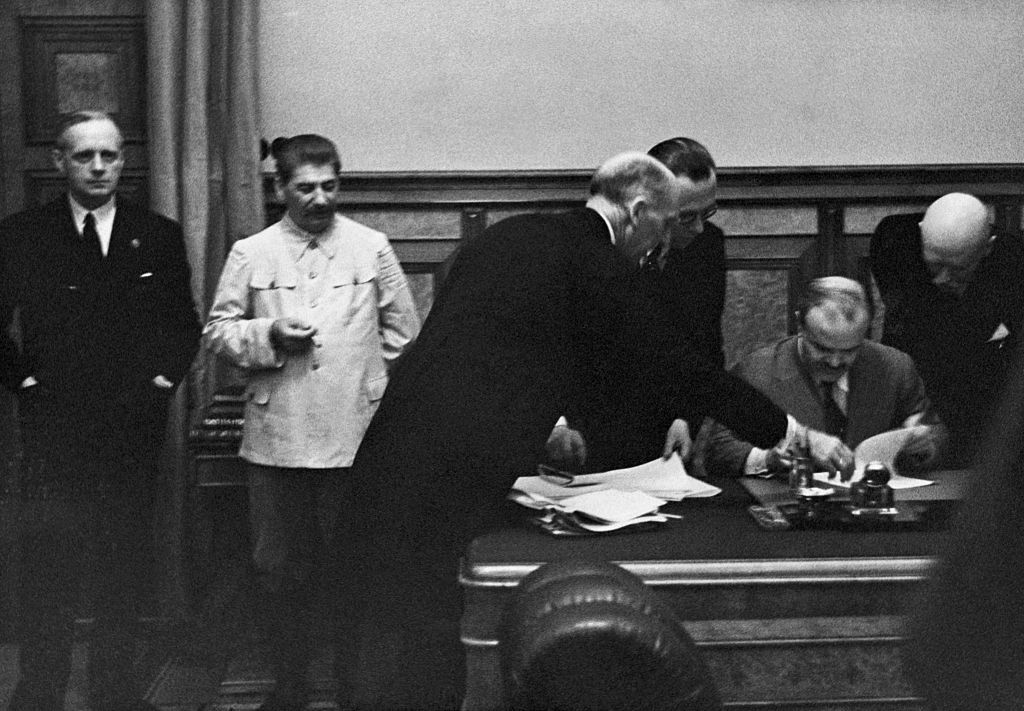
“The conclusion of our agreement with Germany”, stated one memorandum from Molotov’s office, “was dictated by the need for a war in Europe.” For Hitler, it's even simpler: he wants to start a war, and Stalin is the only man willing to help him. (24) 
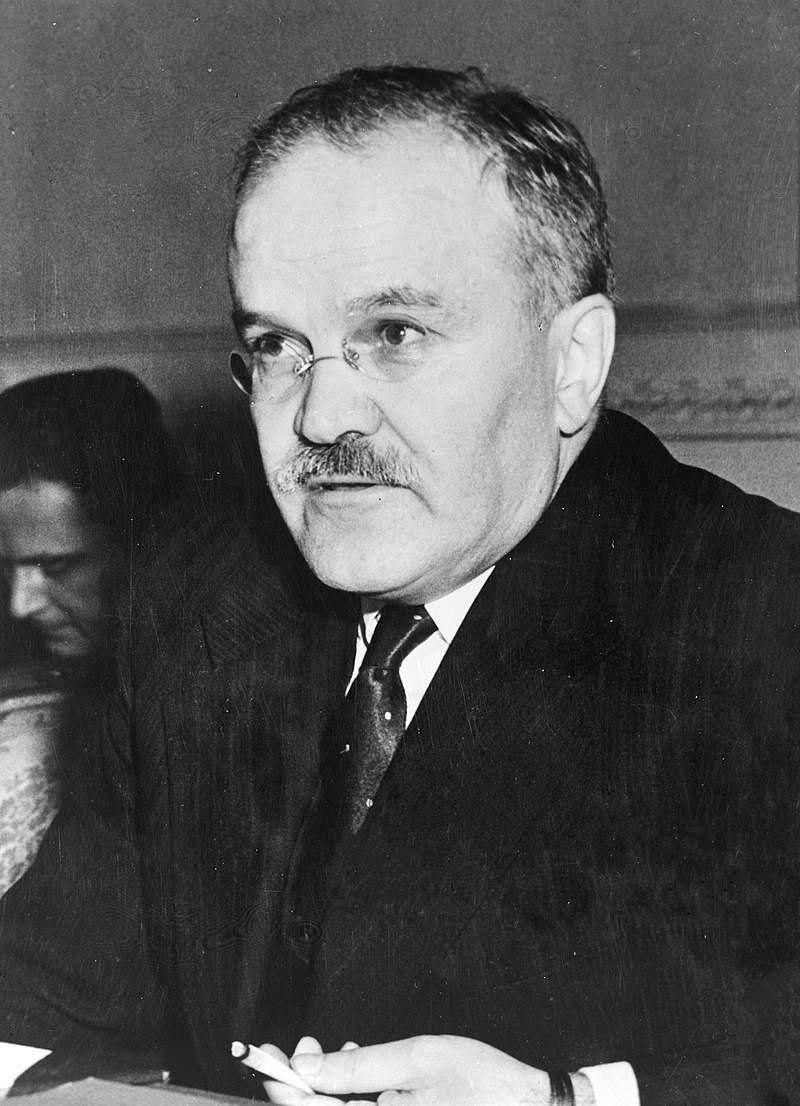
The Hitler-Stalin pact was signed on August 24, 1939. On September 1, 1.5 million German troops are pouring into Poland. “In my life”, Hitler said, “I’ve always gone for broke." (25) 
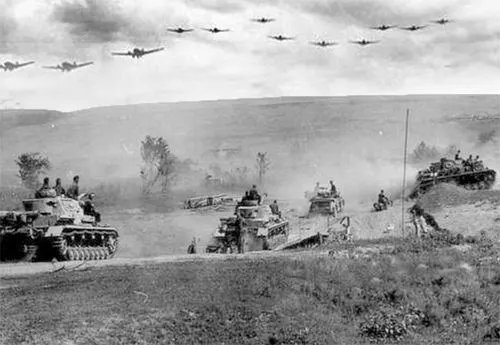
You can clearly see that what Chamberlain attempted was not "appeasement." There was a longstanding attempt to create a stable relationship with Germany to prevent them from linking up with the Soviets. This policy predated Hitler. (26)
Chamberlain was very rationally attempting to keep this policy viable after Hitler's rise to power. Nothing about this was cowardly or irrational. In fact, his core prediction was correct: the war did lead to Soviet takeover of Central Europe. Score one for Chamberlain. (27)
Ultimately, the story of interwar diplomacy is a story about both the British and the Soviets being unable to understand Hitler's ability to be a world historical driver of events, single-handedly dragging the continent towards war. (28)
Chamberlain could not understand Hitler's desire to spark a war at any cost, and Stalin underestimate German operational élan and the risk that the war would come to his doorstep sooner than he expected. (29)
I can't blame either Stalin or Chamberlain for their miscalculations. After all, Hitler and the German campaigns of 1939-41 were like nothing the world had ever seen before, or since. 
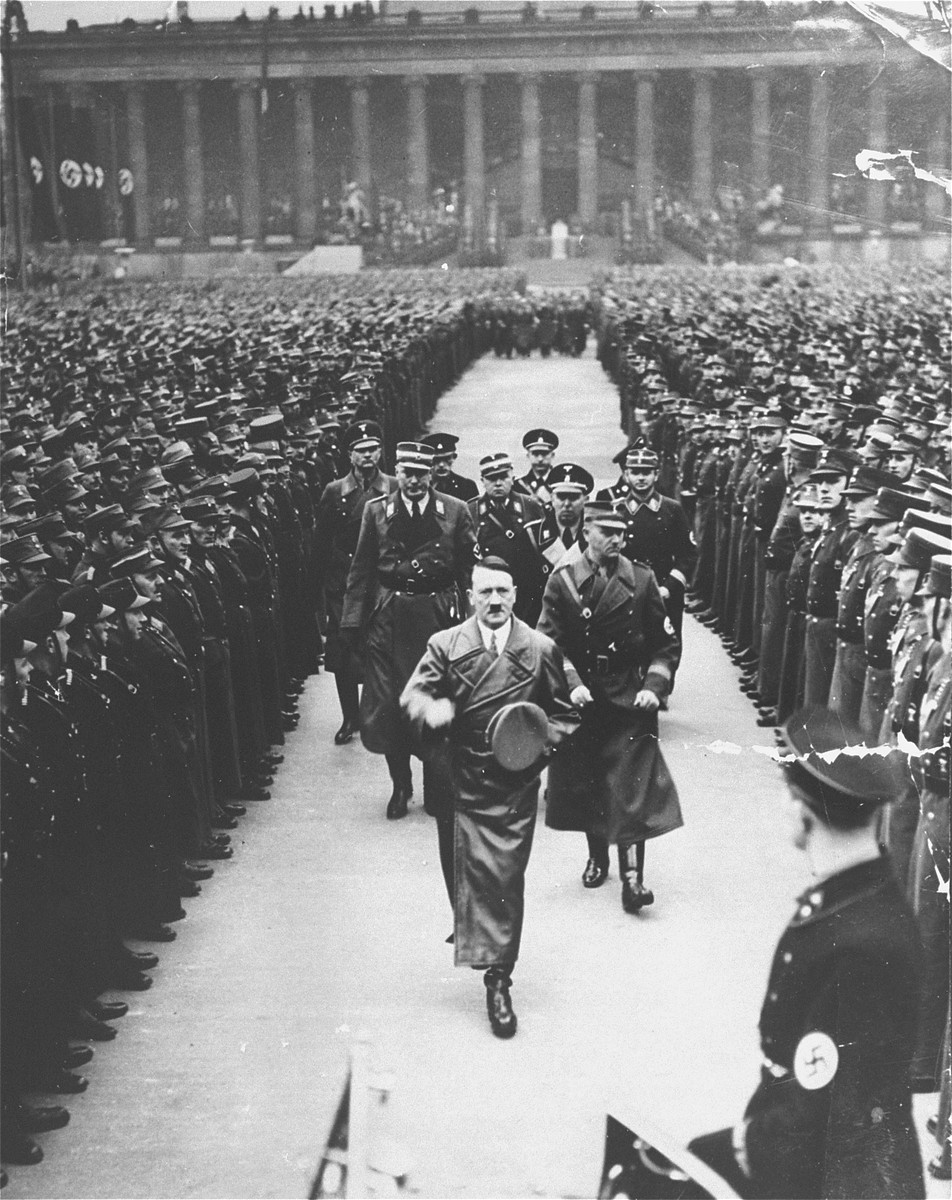
Coda: I have never seen a compelling alternative course of action for France and Britain in 1938-39. It's unclear how, exactly, these countries, which were unprepared for war and had no borders in Central Europe, were supposed to save Czechoslovakia.
Another quote I just remembered: just before the attack on Poland, Hitler said he was worried that “some swine” would submit “an offer of mediation.” Clearly he did not view Munich as a great victory. He wanted war, not diplomacy.
Some are misinterpreting this as a wholesale defense of Chamberlain. My argument is that Chamberlain’s errors have been misunderstood by history.
Appeasement = “Please Mr. Hitler just take what you want and don’t hurt me.”
That’s not what happened. (1/2)
Appeasement = “Please Mr. Hitler just take what you want and don’t hurt me.”
That’s not what happened. (1/2)
Chamberlain’s mistake was not understanding that Hitler made the existing British approach impossible.
It’s the difference between being too scared to stand up to a bully, and not even realizing that you’re dealing with one.
It’s the difference between being too scared to stand up to a bully, and not even realizing that you’re dealing with one.
• • •
Missing some Tweet in this thread? You can try to
force a refresh




